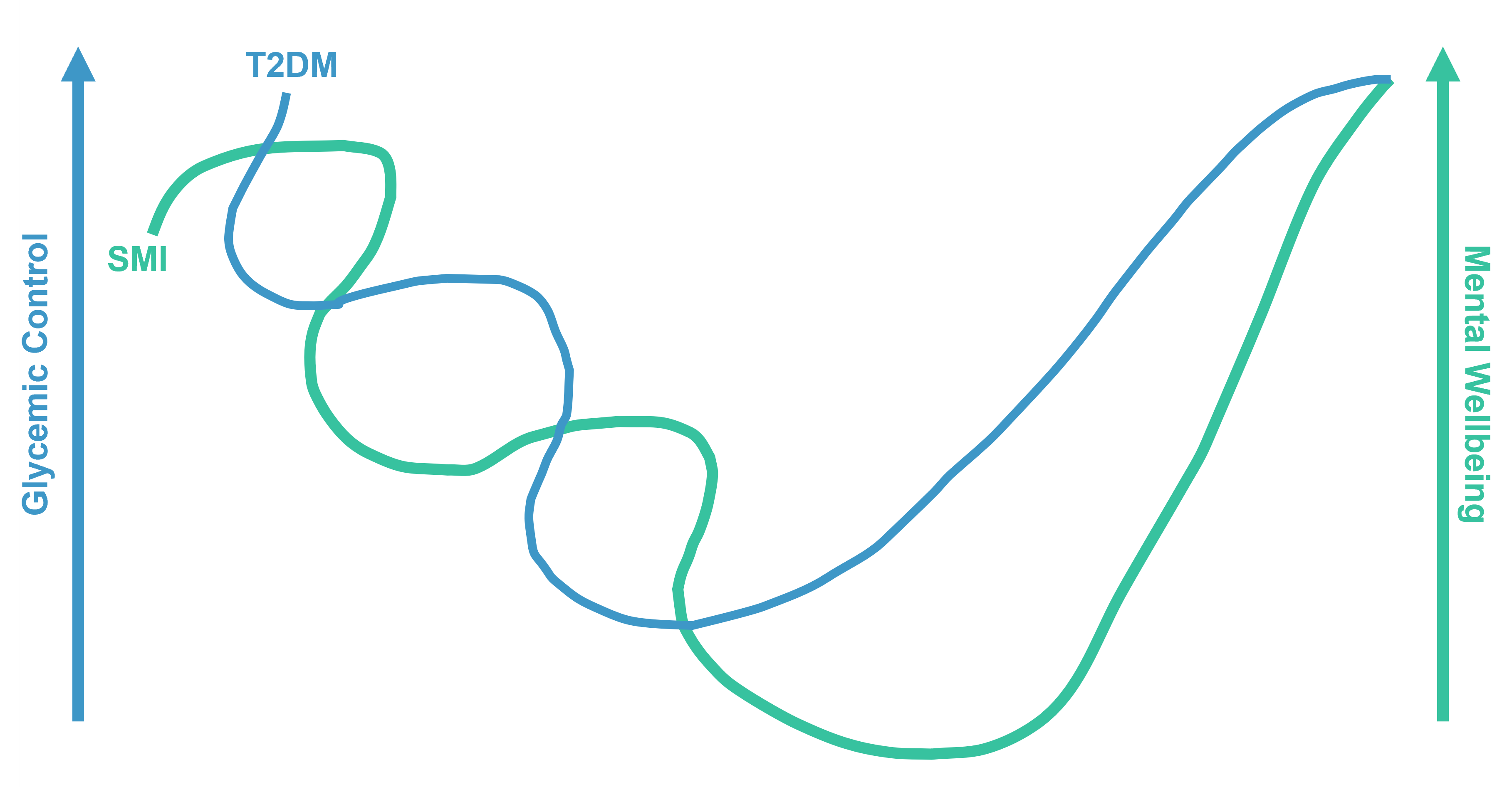Serious Mental Illness
Optimize diabetes care for people living with Serious Mental Illness
One in 20 adults in USA experience serious mental illness (SMI) such as bipolar disorder, schizophrenia, and related psychiatric conditions each year. Relative to the general population where 10.5% have type 2 diabetes (T2DM), people with SMI are known to experience a high burden (8-40%) of T2DM. Among those with T2DM, people with SMI have 22-58% higher risk of major cardiovascular events and are 4.2 times more likely to die prematurely from diabetes complications. It is well known that the risk of T2DM and dysglycemia is especially high among those who are prescribed second-generation antipsychotics (atypical antipsychotics or AAP), especially olanzapine and clozapine but less so for ziprasidone, aripiprazole and lurasidone
This is work I am starting with Dr. Robert O. Cotes, Dr. David Goldsmith, Dr. Rachel Waford and Dr. Francisco J. Pasquel

Related Publications in Mental Health and Socio-emotional Wellbeing
- Varghese 2022 Wellbeing, Space and Society on subjective social status, body mass index, psychological distress and wellbeing in three birth cohorts from Guatemala, Philippines and South Africa
- DiGirolamo 2022 Journal of Nutrition on early life nutritional supplementation and mental distress in Guatemala
- Editor’s Choice Article
- Varghese 2021 SSM - Population Health on wealth mobility, body mass index, fluid intelligence and psychological distress in Guatemala
- Varghese 2021 SSM - Population Health on subjective social status, nutritional status, psychological distress and wellbeing in Guatemala
Getting Involved
These projects are ideal for MD or doctoral students interested in addressing disparities of care in marginalized populations through clinical epidemiology studies.
- Achievement of guideline recommended screening and management of diabetes
- Target trial approaches for effect of second-generation antipsychotics on cardiometabolic health
Pre-requisites
- Proficiency in R or Python
- Required Coursework: EPI 560 Epidemiologic Methods IV, EPI 568 Bias Analysis, Longitudinal Analysis (BIOS 502 or BIOS 525 or BIOS 526)